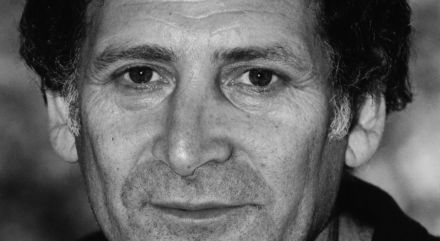
Arnold Zable is one of Australia’s most accomplished storytellers. His lyrical novels explore the experience of migration, and his latest,
Sea of Many Returns,
is set between the island of Ithaca and his home city of Melbourne. Mark Rubbo spoke to him for Readings.
Sea of Many Returns
Ithaca is where my partner Dora’s family comes from, and I have been a regular visitor since 1987. I first travelled in Greece in 1973 and felt an immediate affinity with the land, its people, its culture and history.
The images you create of the locations are incredibly vivid. To what extent are they a product of your imagination?
Having spent much time on the island, many of the Ithacan images are based on what I have observed over the years. The Carrum scenes are derived from many walks in the area. My descriptions of locations such as Kalgoorlie, the Black Sea, the Danube River, are based on research, but at some point the research ends and the imagination takes over.
The structure of the book is different to your earlier books. Apart from the prologue, the novel is written in the form of the journals of Mentor, who emigrated to Australia in the early twentieth century, and his granddaughter, Xanthe, who was born in Australia and is returning to visit with her daughter Martina. What was the intention behind this structure?
The structure enabled me to imagine two related, but quite different, points of view formed in two different eras, extending into four generations of one Ithacan family. It also enabled me to cover over a century in time, right up until 2002, and to recreate tales I have heard of, for example, the late nineteenth century Ithacan voyages to the Black Sea, and the creative partnership between the architect Walter Burley Griffin and Melbourne coffee palace maestro, Antonios Lekatsas.
The Diaspora, European, Jewish, and now Greek, has been a central feature of your work. Is that because you are the child of immigrants?
That has a lot to do with it. I grew up in an immigrant community which included many Greeks, Italians and Jews, and observed first hand the severe disruption to people’s lives caused by migration.
You have been, and continue to be, an indefatigable champion of the rights of refugees and asylum seekers – does that inform your work or vice versa…or neither?
It does inform my work. The current generation of refugees are experiencing the intense challenges faced by previous generations. We tend to forget, or fail to imagine, how difficult it is to start life anew far from the homeland. We forget also that nostalgia, the longing for the return to homeland, is a deep and enduring aspect of the refugee experience.
Reading the book, I got the sense that the islanders that came to Australia are never really part of the society. In one particularly powerful passage you describe the anti-Greek riots in Kalgoorlie during World War I. It’s an incident that seems to destroy the two characters’ emerging sense of belonging.
These riots are among our hidden narratives, darker episodes in Australian history that have been overlooked or conveniently forgotten. The riots, related incidents, and general distrust towards ‘foreigners’ did alienate many immigrants and it took a long time to build a sense of trust and belonging.
As with all your books,
Dora did have a maternal grandfather who became a magician and hypnotist. I have long wanted to imagine what led to that. This is what fiction enables one to do. The performance acts by the way, are partly based on a rare program of one of his shows that I came across in my research.
Although ostensibly Christian, the lives of the islanders are permeated by the myths of the past and your characters constantly refer to these. One character says, ‘life is a hole in the water’. Another says that in life you need only know, ‘Christ and Marx and perhaps Odysseus’. How did you find these?
By listening. In some ways the novel is the result of hundreds of conversations with Ithacans, on the island, and in Melbourne. I am drawn to the quirky sayings and observations that define a person or a culture. Ithaca is inevitably associated with Homer’s Odyssey, and the tales I have heard on modern-day Ithaca have affirmed the enduring resonance of the ancient archetype for voyagers of all times.
After finishing a book by Zable, one always wants more. What’s next?
I have a number of projects I am working on. One will emerge as the leading contender. I have a lot to learn about the writing craft, and I am enjoying a chance to read other writers, and playing with new ideas.


